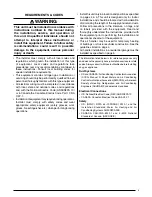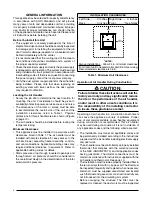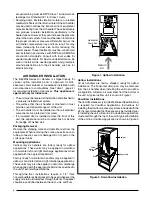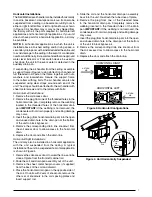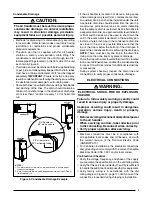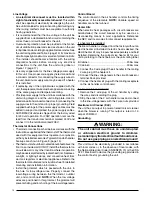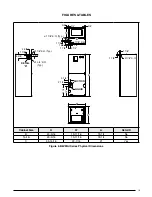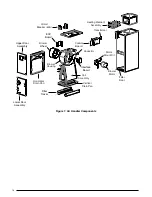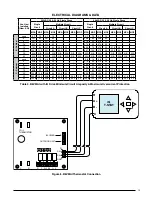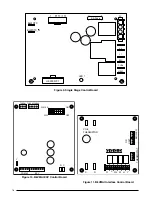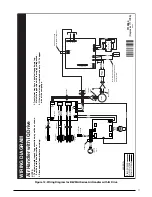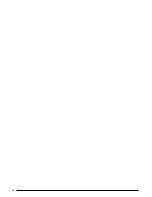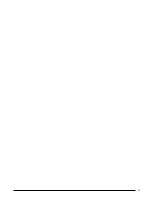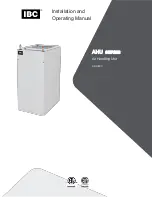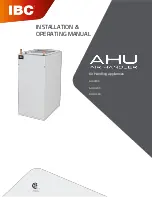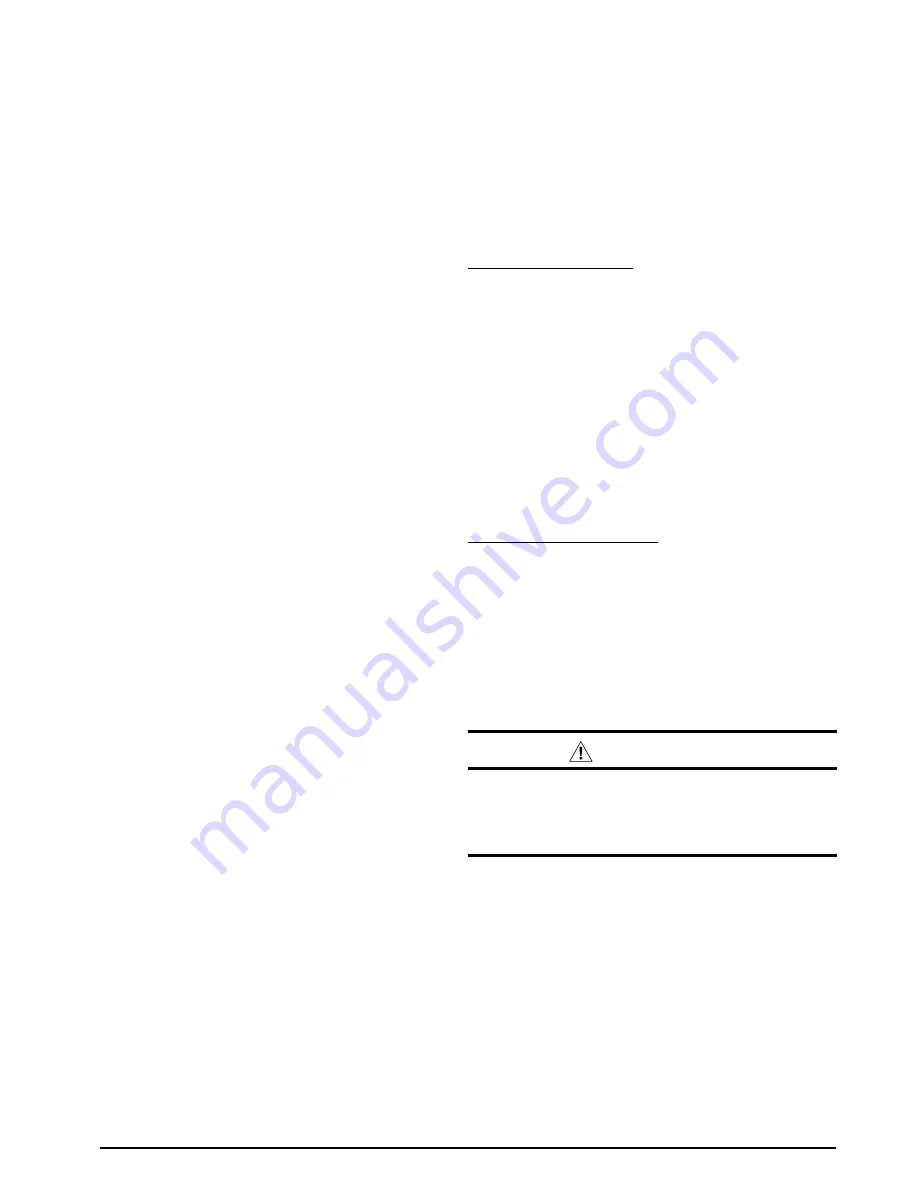
10
Line Voltage
•
An electrical disconnect must be located within
sight of and readily accessible to the unit
. This switch
shall be capable of electrically de-energizing the unit.
See unit data label for proper incoming field wiring. Any
other wiring methods must be acceptable to authority
having jurisdiction.
• It is recommended that the line voltage to the unit be
supplied from a dedicated branch circuit containing the
correct fuse or circuit breaker for the unit.
• Overcurrent protection must be provided at the branch
circuit distribution panel and sized as shown on the unit
rating label and according to applicable local codes. See
the unit rating plate and Table 4 (page 15) for maximum
circuit ampacity & maximum overcurrent protection limits.
• The installer should become familiar with the wiring
diagram/schematic before making any electrical
connections to the unit. See the unit wiring label or
Figure 12 (page 17).
• Use only copper wire for the line voltage power supply
to this unit. Use proper code agency listed conduit and
a conduit connector for connecting the supply wires to
the unit. Aluminum supply wire may be used if a heater
kit is installed.
• If replacing any of the original wires supplied with the
unit, the replacement wire must be copper wire consisting
of the same gauge and temperature rating.
• Provide power supply for the unit in accordance with the
unit wiring diagram, and the unit rating plate. Use UL
listed conduit and conduit connectors for connecting the
supply wires to the unit and for proper grounding. Field
supplied bushings for the power supply cables must be
added to support and protect the power supply cables.
• All 208/230 Volt units are shipped from the factory wired
for 240 volt operation. For 208V operation, remove the
lead from the transformer terminal marked 240V and
connect it to the terminal marked 208V.
Thermostat Connections
• Thermostat connections shall be in accordance with the
instructions supplied with the thermostat. The thermostat
used with this equipment must operate in conjunction
with any installed accessories. Typical AC and air handler
hookups are shown in Figure 8 (page 15).
• The thermostat should be mounted about 5 feet above the
floor on an inside wall. DO NOT install the thermostat on
an outside wall or any other location where its operation
may be adversely affected by radiant heat from fireplaces,
sunlight, or lighting fixtures, and convective heat from
warm air registers or electrical appliances. Refer to the
thermostat manufacturer’s instruction sheet for detailed
mounting and installation information.
• Install the grommet, which is packed with the unit, in
the hole for low-voltage wires. Properly connect the
low-voltage wiring between the thermostat, outdoor
unit, and control board.
NOTE:
When the low voltage
wires are positioned in this grommet, the grommet will
prevent chafing and/or shorting of the low voltage leads.
Control Board
The control board in the air handler controls the timing
sequence of the elements.
NOTE:
Variable speed air
handlers cannot be twinned.
Heater Kits
When electric heat packages with circuit breakers are
field-installed, the circuit breaker may be used as a
disconnecting means in most applications. Reference
the NEC and local codes for disconnect requirements.
If a heater kit is installed:
The B6 air handler is shipped from the factory without an
electric heater kit installed. If electric heat is desired, the
H6HK heater kit may be purchased separately and field
installed. Determine the correct size heater kit for your
unit by referring to the list below or the units rating label.
B Cabinet ....................................................... 20Kw max
C Cabinet ....................................................... 30Kw max
1. Connect the 2 wire plug of the air handler to the mating
2 wire plug of the heater kit.
2. Connect the line voltage leads to the circuit breaker or
terminal block provided.
3. Connect the heater kit plug with the mating receptacle
on the air handler control board.
If a heater kit is not installed:
1. Remove the 2 wire plug of the air handler by cutting
the wires and discarding the plug.
2. Strip the ends of the 2 air handler wires and connect
to the line-voltage leads with the 2 wire nuts provided.
Electronic Air Cleaner (EAC)
The unit has an output to power an electronic air cleaner
when the blower is running. This output is rated to 1.0
amp at 208/240V.
Grounding
WARNING:
The unit cabinet must have an uninterrupted
or unbroken electrical ground to minimize
personal injury if an electrical fault should occur.
Do not use gas piping as an electrical ground!
This unit must be electrically grounded in accordance
with local codes or, in the absence of local codes, with
the National Electrical Code (ANSI/NFPA 70) or the CSA
C22.1 Electrical Code. Use the grounding lug provided in
the control box for grounding the unit.



